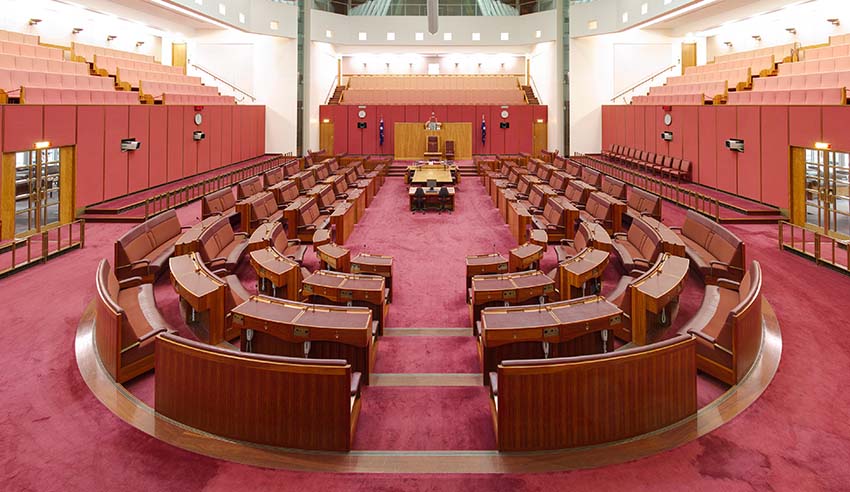Senate committee rejects Leyonhjelm’s bill to enforce model litigant obligations in current form
While noting that Senator David Leyonhjelm’s bill subjecting Commonwealth litigants to enforceable model litigant obligations has “merit”, the Legal and Constitutional Affairs Legislation Committee has recommended that the Senate not pass it in its current form.

The obligation to act as a model litigant is a common law obligation upon the Commonwealth that has existed since 1912.
To continue reading the rest of this article, please log in.
Create free account to get unlimited news articles and more!
As espoused in the well-known Melbourne Steamship case from the High Court of Australia, it requires the Commonwealth to “conduct itself with a standard of fair play”, the committee said in its deliberations.
The Liberal Democrats senator had explained that his bill – which was introduced into the Senate in November 2017 – “would compel future Attorneys-General to maintain the practice of issuing binding obligations to act as a model litigant and would make these obligations enforceable”.
He added: “Firstly, the bill establishes a process by which the Commonwealth Ombudsman can investigate a complaint about a Commonwealth litigant failing to act in accordance with its obligations as a model litigant. Secondly, the bill empowers a court to order a stay of proceedings while the Ombudsman considers a complaint. Thirdly, the bill provides that, if the court is satisfied that the Commonwealth litigant has contravened or is likely to contravene the model litigant obligations, the court may make any order it considers appropriate.”
In a report tabled last Friday, the committee – despite saying the bill shouldn’t pass in its current form – said that action does need to be taken to ensure compliance with the model litigant obligation.
The Commonwealth often has access to extensive resources and legal expertise, it noted, as well as an established reputation before the courts. It is incumbent on Commonwealth litigants, it posited, to act fairly and in the public interest, rather than seek to ‘win at all costs’.
However, the Commonwealth should also act firmly and properly to protect its interests, it added.
“The committee does not wish to unduly dismiss the risk of increases to costs and delays in litigation which, if realised, could affect litigants, the Commonwealth, the courts, the Ombudsman, and potentially others.”
It recommended “that the government initiate action to fully ascertain the nature and extent of the problem of non-compliance with the model litigant obligation, such as an independent audit of compliance.”
It further recommended “that the government include tribunals (such as the Administrative Appeals Tribunal), as well as courts, in any proposed legislation relating to the enforcement of the model litigant obligation by courts.”






